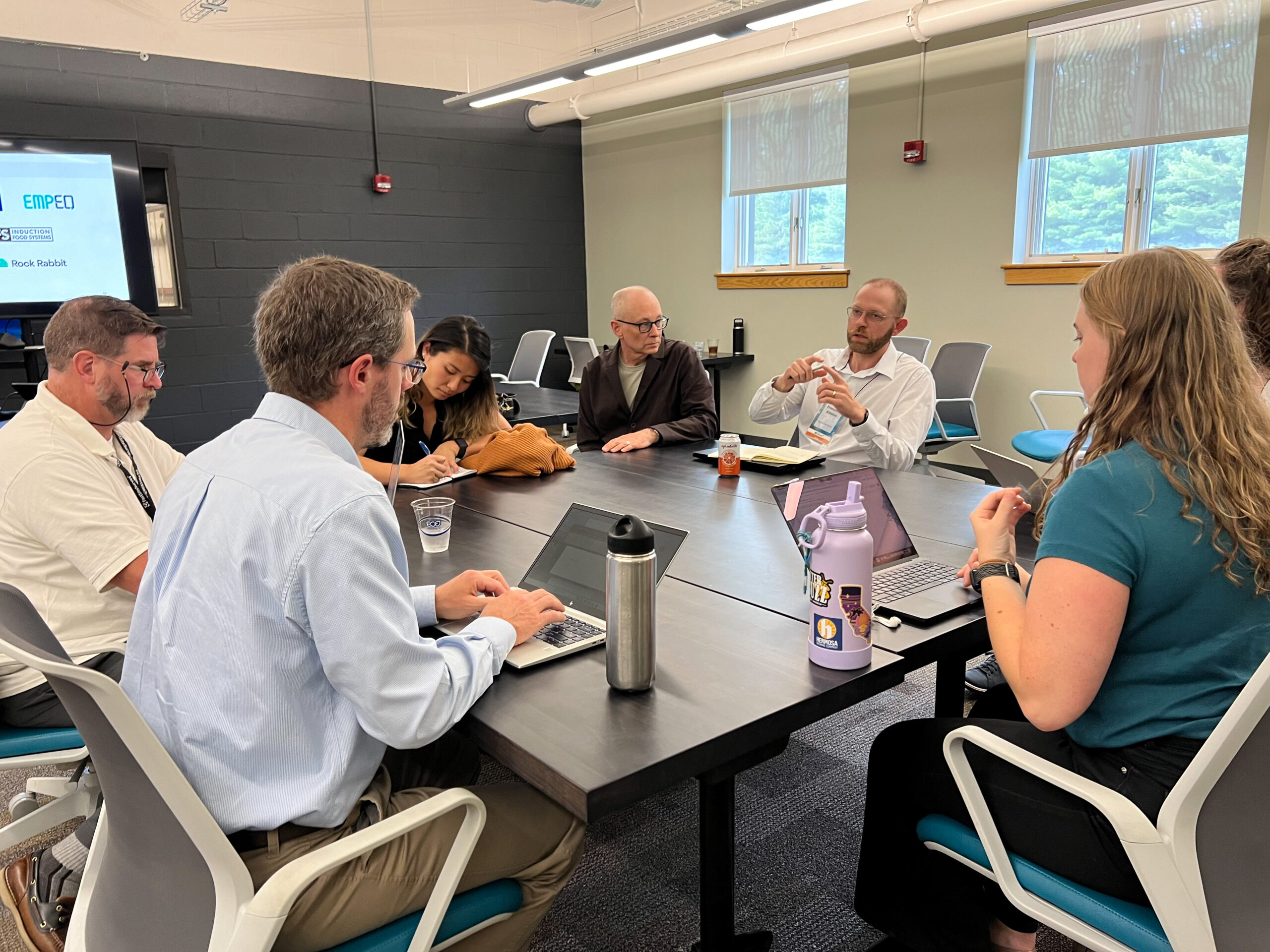The DeltaClimeVT climate economy business accelerator is seeking innovative start-up and seed stage ventures offering innovative products and services aimed at reducing greenhouse gas emissions and increasing resilience in an effort to help Vermont meet its climate goals.
During Energy 2025, entrepreneurs will work directly with Vermont utilities who are ready to work directly with Vermont utilities to contribute to Vermont’s Comprehensive Energy Plan (90% renewables/efficiency by 2050), Vermont’s Climate Action Plan, and Burlington’s Net Zero by 2030 goals. Over three months, the program includes intensive work sessions, two online and two in-person intensive sessions (each 2-4 days in duration), weekly assignments and bi-weekly webinars as well as frequent 1:1 engagement with mentors.
“We are particularly interested in services and technologies that have wide potential applicability in rural locations and that allow commercial and industrial businesses, low and moderate-income Vermonters, underrepresented populations and multi-family building residents to participate in the emerging low-carbon economy,” said Ellen Kahler, Executive Director at the Vermont Sustainable Jobs Fund (VSJF).
This will be the ninth cohort for the accelerator program, managed by VSJF, that will bring together 7-10 early-stage energy companies from across the U.S. and Canada to work together over three months to complete a world-class ecosVC Lens of the Market® ACCELERATED curriculum while competing for a $25,000 award for the top venture. The program also features paid pilot opportunities; extensive peer feedback; connections with potential customers, partners, and mentors; and exposure to investors.
Examples of technologies or services could include but are not limited to:
- Smart building technologies such as building controls, dynamic EV charging equipment, heat pump load management, storage;
- Especially technologies that make electric panel upgrades more cost-effective, or smart panel devices that avoid the need for upgrades and/or help with managing loads;
- Service models designed to manage and maintain heat pump, storage and other DER utility programs with assets in the field, to include customer enrollment;
- EV charging companies at all scales, for various site applications including residential, multi-family, and utility managed Level 2 and 3 chargers;
- Technologies that encourage the most cost-effective approaches to decarbonization when considering the whole system to avoid costly grid upgrades (e.g. ground source heat pumps, thermal energy network technologies and services);
- Innovative carbon capture or carbon reduction or reuse technologies that might apply at smaller power generation facilities.
To learn more about DeltaClimeVT Energy 2025, visit deltaclimevt.com. Application period closes January 27, 2025.
About DeltaClimeVT – A Climate Economy Business Accelerator
The DeltaClimeVT business accelerator is a Vermont-based program serving startup and seed-stage ventures focusing on energy and climate economy innovation in the energy sector. The program provides an intense accelerated learning and business development process designed to test assumptions, expose and remediate business vulnerabilities, prepare for significant investment, and provide a platform for rapid scaling. As a proven leader in sustainability, Vermont offers participants access to a large number of entrepreneurial climate economy and energy experts throughout the program. The program is managed by the Vermont Sustainable Jobs Fund (VSJF). deltaclimevt.com
About Vermont Sustainable Jobs Fund
In addition to offering the DeltaClimeVT business accelerator to startup and seed stage entrepreneurs, the Vermont Sustainable Jobs Fund (VSJF) provides business assistance, supply chain coordination, network development, and strategic planning to a wide range of stakeholders in the agriculture and food system, forest product, waste management, renewable energy, and environmental technology sectors. Located in Montpelier, Vermont, VSJF was created by the Vermont Legislature in 1995 to partner with state government, private sector businesses, and nonprofits to build a thriving economic, social, and ecological future for Vermont.
Read More Stories Like This:
- Rock Rabbit wins the Vermont-based DeltaClimeVT Energy 2024 climate economy business accelerator; Moduly secures pilot
- DeltaClimeVT Founder Stories – Qilo
- Medley Thermal Pilots Clean Energy Solution at Jay Peak
- The Power of Paying it Forward: An Interview with SaLisa Berrien, COI Energy
- Vermont Startup Bets on Better Data to Decarbonize Buildings
- Grid Fruit Founders Focus on Refrigeration to Help Cool the Planet
- Slowing Climate, Change One Window at a Time

